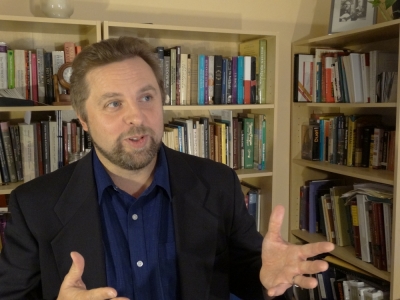Terrorism Will Make the World More Nationalist, Studies Show

With the news of explosive devices detonating in New York and New Jersey, as well as an ISIS-backed stabbing rampage in a Minnesota mall, all within a 12 hour period, I was reminded of a July cover page of the U.K.'s Daily Telegraph: "84 dead in Nice, 281 dead in Baghdad, 49 dead in Orlando, 72 dead in Lahore, 35 dead in Brussels, 18 dead in Grand-Bassam, 12 dead in Jakarta, 45 dead in Istanbul, 14 dead in San Bernardino, 130 dead in Paris," and on and on and on.
The deadly litany was in response to a terrorist incident which occurred just hours earlier, when a Tunisian deliveryman, Mohamed Bouhlel, barreled his truck into a crowd in Nice, France, killing 84 and wounding 200. While the explosions and stabbings in the three U.S. cities thankfully have not resulted in any deaths, the Daily Telegraph headline nevertheless captured profoundly the perennial problem of global terror in our time.
For the goal of ISIS's global terrorist attacks, we need look no farther than the title of its online magazine, Dabiq. The title refers to a town in northern Syria that Islamic prophecy foresees as the place where the armies of Rome will mass to confront the armies of Islam. From there, it is nothing short of a global caliphate where "the shade of the blessed flag will expand until it covers all eastern and western extents of the Earth." Thus, terrorism seeks to intimidate and weaken the resolve of nations while increasing support for ISIS among Muslims.
While a worldwide caliphate is ISIS's goal, we can look to recent studies to illuminate the potential political consequences of such terrorist acts.
Claude Berrebi and Esteban F. Klor's study of the Israeli electorate found that elections held within a few months of a terrorist attack caused an increase of 1.35 percentage points in support of the political right, even within left-leaning localities. Anna Getmansky and Thomas Zeitzoff observed that repeated exposure to rocket threats shifted Israeli voter support to rightwing nationalists during the 2003-2009 elections. A comparable turn towards nationalist parties has been observed in Turkey in response to attacks by Kurdish PKK militants.
One theoretical explanation for this rightward turn is what anthropologist E.E. Evans-Pritchard called systems of segmentary oppositions. For example, my brother and I may fight, but then team up against our cousins, and our extended family will see ourselves against this other family, and our neighborhood will bond together against a rival neighborhood, and so on.
And so in light of terrorist events, localized and regional identities transition into nationalist segments and sentiments: it is our nation vs. ISIS, or it is European civilization against Islamization. In a world order comprised of nation-state constituents, reactions towards terrorist activities inevitably formulate into nationalist expressions.
What this means is that if terrorist activity continues to grow and intensify around the world, and all signs suggest that it will, the various electorates of the world will continue to turn towards their nationalist counterparts as a response, in turn dealing a severe blow to leftist and globalist agendas.





















